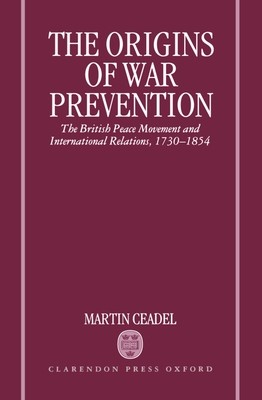
- We will send in 10–14 business days.
- Author: Martin Ceadel
- Publisher: Clarendon Press
- ISBN-10: 0198226748
- ISBN-13: 9780198226741
- Format: 16.4 x 24.2 x 4.2 cm, hardcover
- Language: English
- SAVE -10% with code: EXTRA
Reviews
Description
This book makes an original contribution to international relations and British politics. It identifies for the first time the dominant pre-modern theory of international relations, which fatalistically assumed that war was beyond human control. It then shows how this theory was undermined from the 1730s onwards, with the consequence that a debate began about how best to prevent war in which a vocal minority argued that war as an institution for settling disputes could be abolished. Britain led the way in this repudiation of fatalism and exploration of pacific alternatives: it produced the world's first peace movement (which appeared in the mid-1790s as a response to the French wars) and the first enduring national peace association (the Peace Society, founded in 1816 and active for nearly a century); and it was the first counbtry to allow peace thinking to enter its political mainstream. This book, the first to make use of the Peace Society's records, fills a major gap in the
historiography of British politics.
EXTRA 10 % discount with code: EXTRA
The promotion ends in 16d.12:52:46
The discount code is valid when purchasing from 10 €. Discounts do not stack.
- Author: Martin Ceadel
- Publisher: Clarendon Press
- ISBN-10: 0198226748
- ISBN-13: 9780198226741
- Format: 16.4 x 24.2 x 4.2 cm, hardcover
- Language: English English
This book makes an original contribution to international relations and British politics. It identifies for the first time the dominant pre-modern theory of international relations, which fatalistically assumed that war was beyond human control. It then shows how this theory was undermined from the 1730s onwards, with the consequence that a debate began about how best to prevent war in which a vocal minority argued that war as an institution for settling disputes could be abolished. Britain led the way in this repudiation of fatalism and exploration of pacific alternatives: it produced the world's first peace movement (which appeared in the mid-1790s as a response to the French wars) and the first enduring national peace association (the Peace Society, founded in 1816 and active for nearly a century); and it was the first counbtry to allow peace thinking to enter its political mainstream. This book, the first to make use of the Peace Society's records, fills a major gap in the
historiography of British politics.


Reviews